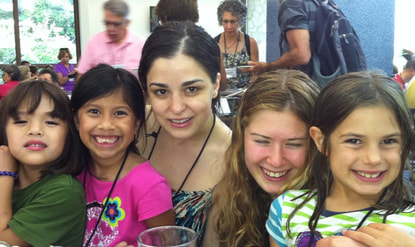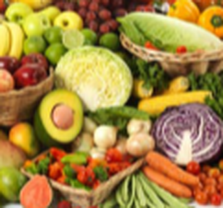
In 1942 President FDR – husband to social justice hero Eleanor Roosevelt, signed an executive order that put thousands of law-abiding Japanese American citizens in prison camps. There was little outcry. In the 1970s, in collaboration with doctors, our government forced African American men to endure late stage syphilis. Few with knowledge of this objected. U.S. history begins with violently removing indigenous inhabitants from their ancestral lands. Shockingly, in the 1800s, some abolitionists opposed women voting. Today some who support civil rights for people of color oppose marriage equality for LGBTQ identifying individuals. The book, The Immortal Life of Henrietta Lacks, describes a large American hospital in the 1950s injecting cancer cells into hundreds of patients without their knowledge or consent. Three Jewish doctors were the only ones to object. But their views were marginalized as being “overly sensitive because of the Holocaust." History is full of similar examples. Perhaps that is why Albert Einstein said, “The world is a dangerous place not because of those who do evil, but because of those who look on and do nothing.”
The Holocaust is one of the most egregious examples of human’s capacity to look away and disregard injustice. After hearing about it, many wanted to know, “How did so many seemingly average people allow it to happen? The classic experiment by Stanley Milgram sought to answer this. His data showed that under certain conditions, half of us will go along with things we know harm others. Milgram stated, "Ordinary people, simply doing their jobs, and without any particular hostility on their part, can become agents in a terrible destructive process." Some cultures (and by implication their cultural practices) appear to be less vulnerable to this. So it’s worth asking, what practices might make us less likely to ignore injustice threatening someone else?
The Holocaust is one of the most egregious examples of human’s capacity to look away and disregard injustice. After hearing about it, many wanted to know, “How did so many seemingly average people allow it to happen? The classic experiment by Stanley Milgram sought to answer this. His data showed that under certain conditions, half of us will go along with things we know harm others. Milgram stated, "Ordinary people, simply doing their jobs, and without any particular hostility on their part, can become agents in a terrible destructive process." Some cultures (and by implication their cultural practices) appear to be less vulnerable to this. So it’s worth asking, what practices might make us less likely to ignore injustice threatening someone else?
I raised two children to adulthood as vegans. We taught them the moral basis for this lifestyle: When we have a choice, choose non-violence and non-exploitation. I watched our vegan practice lay a foundation for each to think critically about how their personal actions may impact injustice happening to others. I have been heartened over and over to see my children risk disapproval in social situations rather than be complicit in harms to others. From speaking up to a bully who was threatening a peer, to expressing concern about planned classroom activities that would harm animals, my children did not, “look on and do nothing.”
Increasingly our main vote is how we spend our dollars. But the greatest contribution of veganism is not its boycott of intentional violence. Rather, it’s the ripple effect resulting from someone standing firmly in solidarity with justice, nonviolence and compassion. This inspires those around them to consider their own choice of where to stand. The fact that human beings have the capacity to ignore injustice happening to those we have been taught to “otherize,” is what has enabled every human-caused tragedy. One group (in terms of number of individuals impacted) has been more victimized and exploited by this phenomenon than any other: The non-human beings we’ve been, “taught” to eat, hunt, experiment on and use for entertainment. So why not “teach” something else?
To embrace a vegan ethic, is an important step if one seeks to avoid being complicit in violence and exploitation against the vulnerable. This effort encourages critical thinking and compassion – the very things we most need if we wish to see justice flourish. Modeling for the next generation a conviction to practice non-violence in our diet, what we buy, and what we endorse, may be the single most powerful action any of us can take at this time in history. Please join the peaceful revolution.
Increasingly our main vote is how we spend our dollars. But the greatest contribution of veganism is not its boycott of intentional violence. Rather, it’s the ripple effect resulting from someone standing firmly in solidarity with justice, nonviolence and compassion. This inspires those around them to consider their own choice of where to stand. The fact that human beings have the capacity to ignore injustice happening to those we have been taught to “otherize,” is what has enabled every human-caused tragedy. One group (in terms of number of individuals impacted) has been more victimized and exploited by this phenomenon than any other: The non-human beings we’ve been, “taught” to eat, hunt, experiment on and use for entertainment. So why not “teach” something else?
To embrace a vegan ethic, is an important step if one seeks to avoid being complicit in violence and exploitation against the vulnerable. This effort encourages critical thinking and compassion – the very things we most need if we wish to see justice flourish. Modeling for the next generation a conviction to practice non-violence in our diet, what we buy, and what we endorse, may be the single most powerful action any of us can take at this time in history. Please join the peaceful revolution.
If you would like a printer-ready copy of this essay to post to bulletin boards or pass out click HERE

